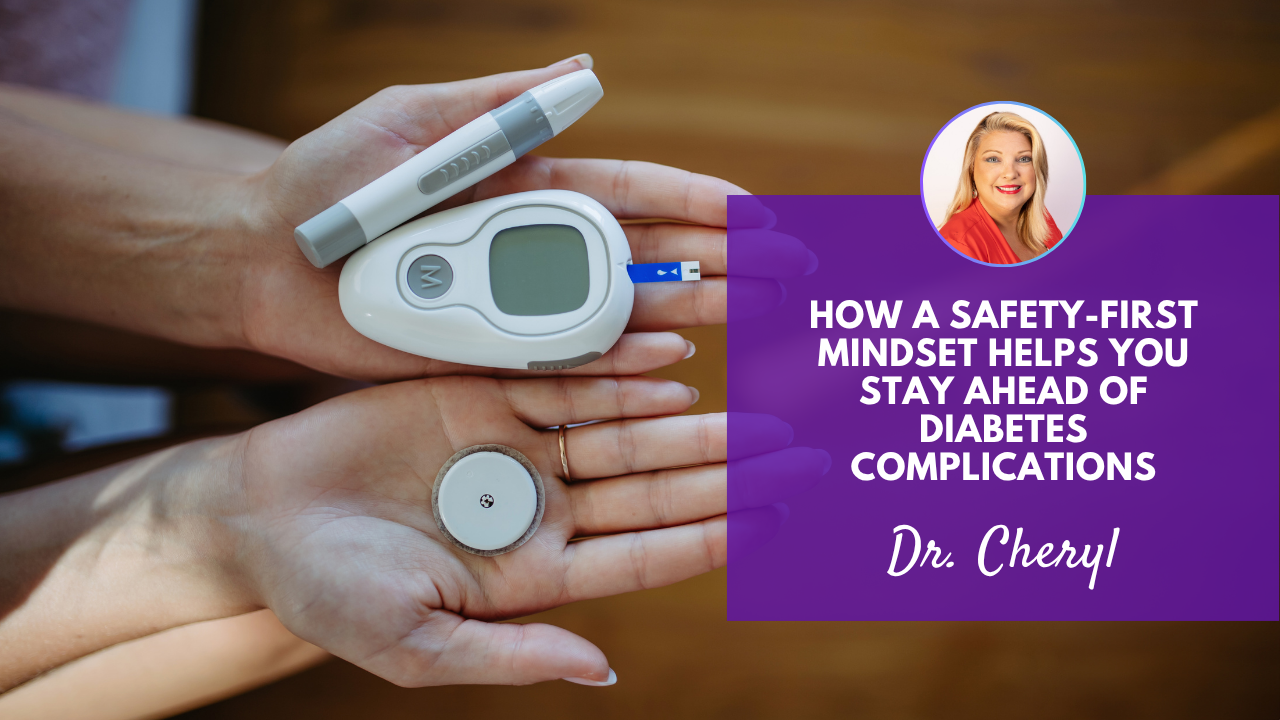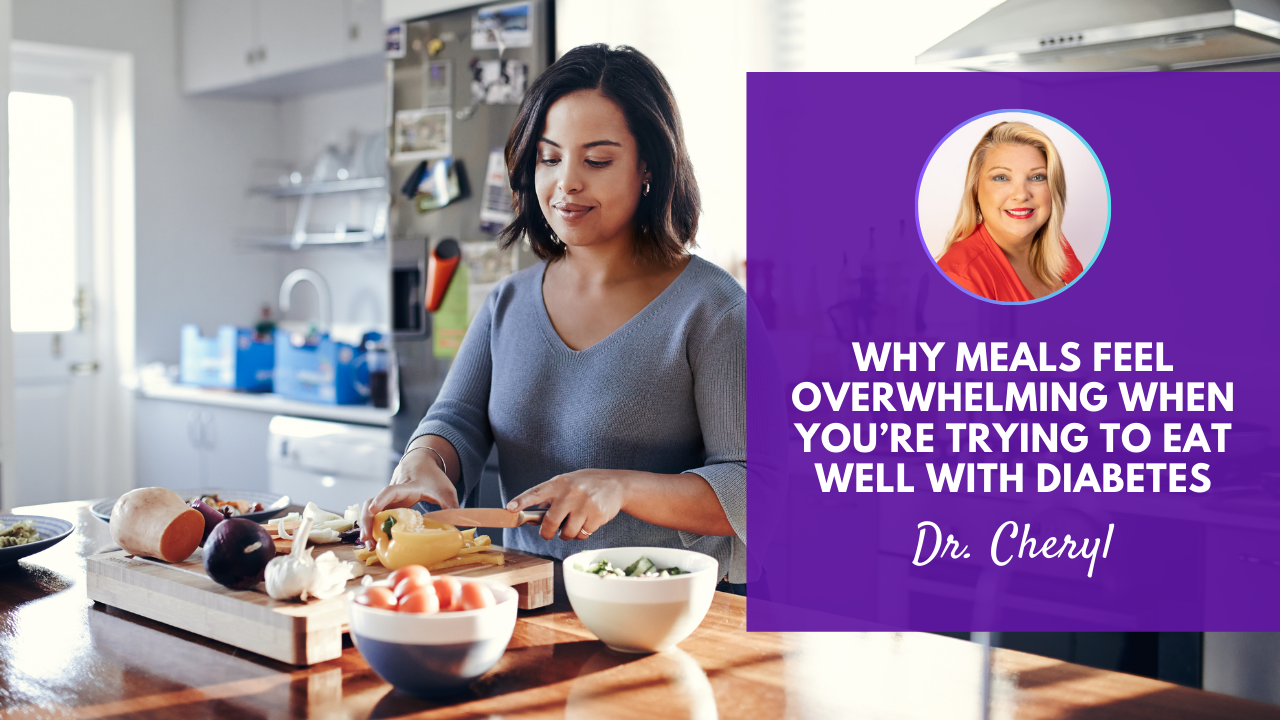
How a Safety-First Mindset Can Help Prevent Diabetes Complications
This month we’re focusing on Diabetes Safety Precautions—a time to refocus on what truly protects your long-term health. While most people think of safety in terms of food or medication, the most powerful form of protection often starts with your mindset.
Your thoughts, habits, and internal dialogue shape the decisions that either prevent complications—or allow them to build. A safety-focused mindset helps you stay one step ahead by increasing awareness, improving choices, and reducing risk.
Recognize Risk Before It Escalates
One of the most protective benefits of a safety-first mindset is early detection. When your thinking is calm, observant, and consistent, you’re more likely to notice small signs before they become serious issues.
You might hear yourself saying:
- “It’s just one skipped check-in.”
- “This dizziness will pass.”
- “I’ve been tired lately, but I’ll push through.”
These responses may seem harmless, but they often delay the action your body needs. Subtle changes in energy, mood, vision, or concentration are early signs that something might be off.
Try pausing to ask yourself:
- “Is this my body asking for attention?”
- “Have I ignored a routine or shifted something recently?”
Even small changes, like the switch to daylight savings time, can affect your blood sugar. I always set calendar reminders for time changes and help my household adjust in advance. If my meals are delayed by just an hour, I notice an immediate effect on blood sugar.
Simple tools like journaling, symptom tracking, or calendar reminders can help you build safety into your day before issues arise.
Reframe the Habit of “I’ll Be Fine”
Many people living with diabetes push through discomfort and avoid seeking help. It feels easier or faster in the moment, but over time, this habit can contribute to more serious complications.
A safety-first mindset invites a different approach:
- “Asking for support now protects my future.”
- “I can pause to care for myself without falling behind.”
- “My safety is a strength, not a setback.”
This type of thinking allows you to treat self-care not as a delay—but as a form of power and prevention.
Shift Your Inner Voice to Encourage Prevention
If your internal voice minimizes the importance of self-care, you’re more likely to skip essential steps that protect your health.
Here’s how to shift that voice into something more supportive:
- Instead of: “I’m too busy to check my levels.”
Try: “One minute now could prevent hours or days of stress later.” - Instead of: “This symptom will pass.”
Try: “My body is speaking. I’ll respond before it gets louder.”
These micro-adjustments in your self-talk can lead to more consistency, fewer emergencies, and a more empowered relationship with your health.
What a Safety-First Mindset Can Help Prevent
By consistently choosing thoughts and actions that support safety, you can reduce your risk of:
- Hypoglycemia and dangerous blood sugar crashes
- Blood sugar spikes from missed meals, stress, or skipped medication
- Long-term complications like nerve damage, vision changes, and heart issues
- Emotional burnout and decision fatigue
Each time you choose safety, you reinforce habits that support a more stable and confident life with diabetes.
Thoughtful, Not Fearful
A safety-first mindset is not about living in fear. It’s about living with awareness and intention. Checking symptoms, asking questions, and prioritizing rest are not signs of overreacting—they are signs of caring.
“I used to ignore the little signs and push through, thinking it wasn’t a big deal. After working on my mindset with Dr. Cheryl, I now recognize the triggers and notice how I feel. I catch things sooner, and my A1C is finally in the healthy range for the first time in eight years. I feel more in control and far less anxious every day.”
— Karen T., 58, living with Type 2 diabetes
Your Mindset Can Become a Powerful Safety Tool
Your thoughts shape your choices, and your choices shape your health. A steady mindset is not just helpful, it’s protective.
If you’ve been trying to manage everything on your own or feel like your inner voice is working against your well-being, this is your chance to reset.
That’s why I offer a complimentary Diabetes Wellness Connection Call for people living with diabetes who are ready to bring more clarity, calm, and confidence into their daily care.
In this private free session, we will:
- Explore how your mindset may be helping or hindering your safety
- Identify patterns that lead to blood sugar swings or burnout
- Pinpoint simple mindset shifts you can begin using right away
This is your chance to stop reacting and start preparing without fear, guilt, or guesswork.
📅 Schedule your free Connection Call here: Click to book now link
ABOUT THE AUTHOR

Dr. Cheryl
Dr. Ac., C.H., RDH
Dr. Holistic Studies, Dr. Acupuncture
Diabetes Wellness Strategist & Coach
Creator & CEO of Holistic Diabetes Solutions
8 X International Best-Selling Author
As a woman living with diabetes for over 30 years, Dr. Cheryl understands the journey firsthand. When she was diagnosed, she received the same outdated advice her grandmother was given for over four decades, who relied primarily on medication, suffered from deteriorating health and eventually lost her life to diabetes. Fueled by this experience, Dr. Cheryl was compelled to seek a better way. Through countless research studies and trials, she developed the winning holistic approach: the Diabetes Success System which merges traditional wisdom with today’s best holistic self-care practices. It has revolutionized diabetes management by providing a trusted way to maintain consistent and predictable healthy blood sugar levels.
_______________________
PROFESSIONAL DISCLAIMER
The material and content contained in this platform is for overall general diabetes health and education information only. It is not intended to constitute medical advice or to be a substitution for professional medical recommendations, diagnosis or treatment. All specific medical questions or changes you make to your medication and/or lifestyle should be discussed and addressed with your primary healthcare provider. Having the right mindset, doing the right movements at the right times of day, and eating foods that help keep blood sugar, insulin, and inflammation manageable can dramatically reduce your risk of the all-too-common complications of Diabetes, increase your energy levels and have you feeling your best every day.






